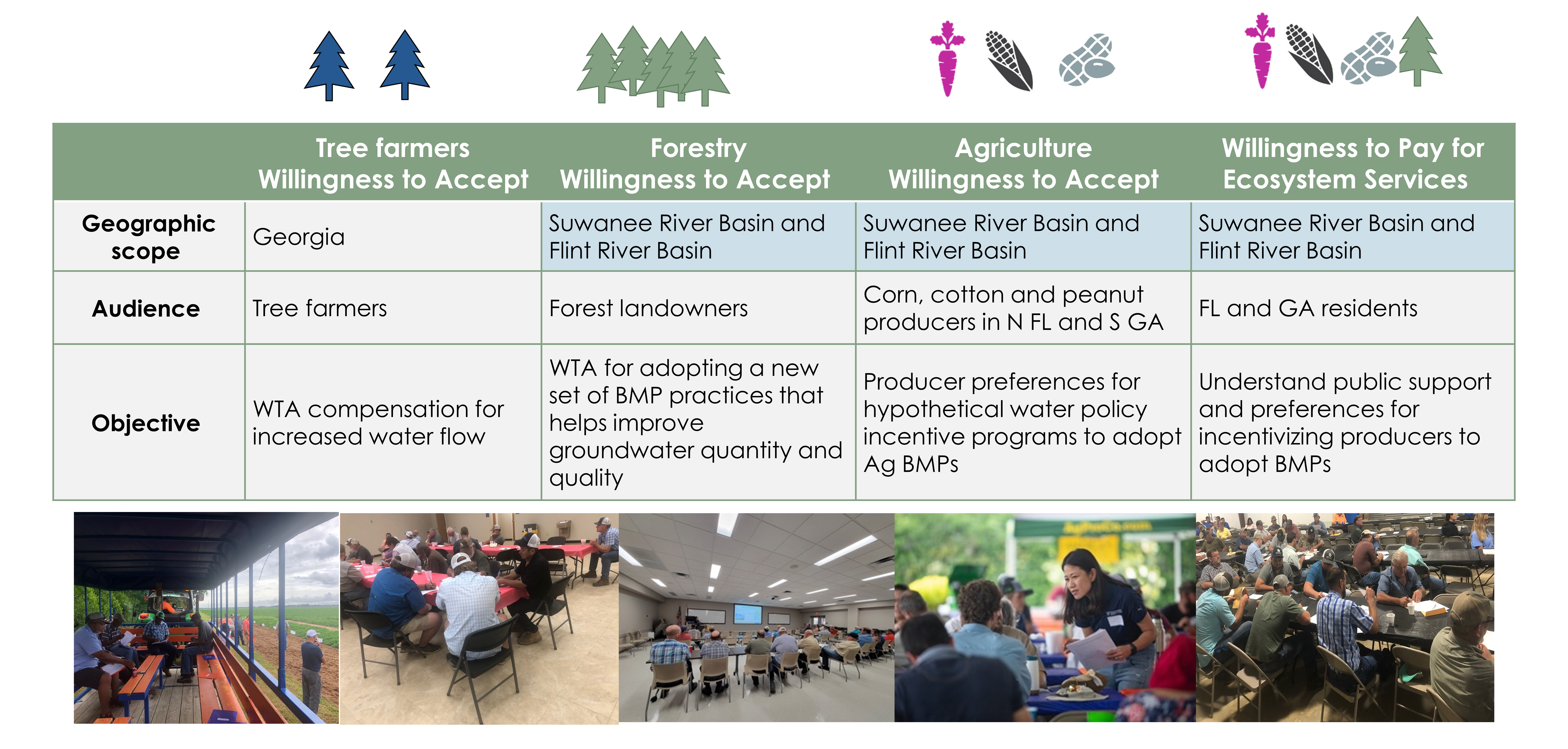Project economists conducted stakeholder preference and valuation research to understand stakeholders' perceptions of financial incentives for adopting water-promoting management practices. Willingness to Accept (WTA) studies are used to estimate compensation amounts needed to encourage adoption by producers/landowners of new management practices, while Willingness to Pay (WTP) studies help understand public support and preferences for incentivizing producers to adopt new management practices.
FACETS conducted four stakeholder preferences and policy design research studies. Two Willingness to Accept studies aimed to determine the willingness of forest landowners to accept payment for the adoption of water conservation-based management practices. A third Willingness to Accept study focused on the willingness of Florida and Georgia agricultural producers to accept payment for the adoption of water quality and quantity agricultural best management practices. Finally, a Willingness to Pay survey aimed to understand the general public's preference for supporting an incentive program for producers to adopt such conservation practices.
Stakeholder Preferences & Policy Design Research Studies

Results
Results show that if provided with incentives:
- Forest landowner/producers are willing to reduce planting density, change rotation age, and thinning;
- Agricultural producers are willing to adopt SMS, controlled release fertilizer, and cover crop BMPs; and
- Residents are willing to pay farmers and foresters to improve water quality and availability.
Results provide policymakers with information on program feasibility, range of price, and potential financial output to incentivize producers.

